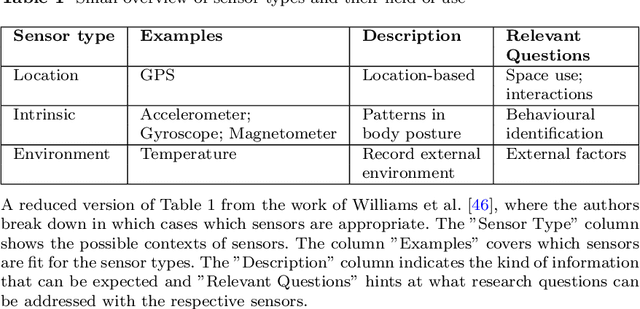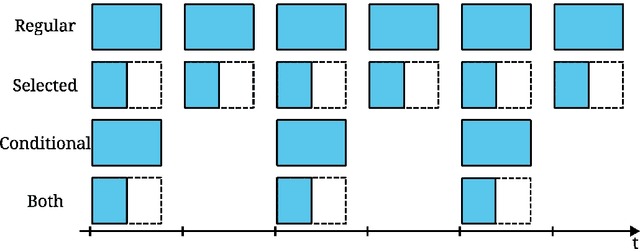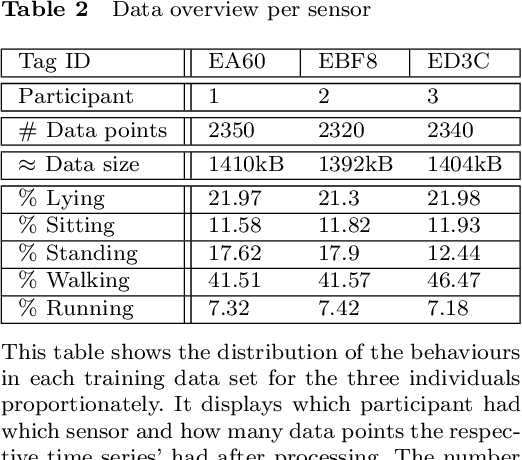Get our free extension to see links to code for papers anywhere online!Free add-on: code for papers everywhere!Free add-on: See code for papers anywhere!
Karsten Klein
Resource efficient data transmission on animals based on machine learning
Mar 13, 2025Figures and Tables:







Abstract:Bio-loggers, electronic devices used to track animal behaviour through various sensors, have become essential in wildlife research. Despite continuous improvements in their capabilities, bio-loggers still face significant limitations in storage, processing, and data transmission due to the constraints of size and weight, which are necessary to avoid disturbing the animals. This study aims to explore how selective data transmission, guided by machine learning, can reduce the energy consumption of bio-loggers, thereby extending their operational lifespan without requiring hardware modifications.
* Submitted to Scientific Reports but not published, 23 pages, 5
figures, 3 tables
Via
 Add to Chrome
Add to Chrome Add to Firefox
Add to Firefox Add to Edge
Add to Edge